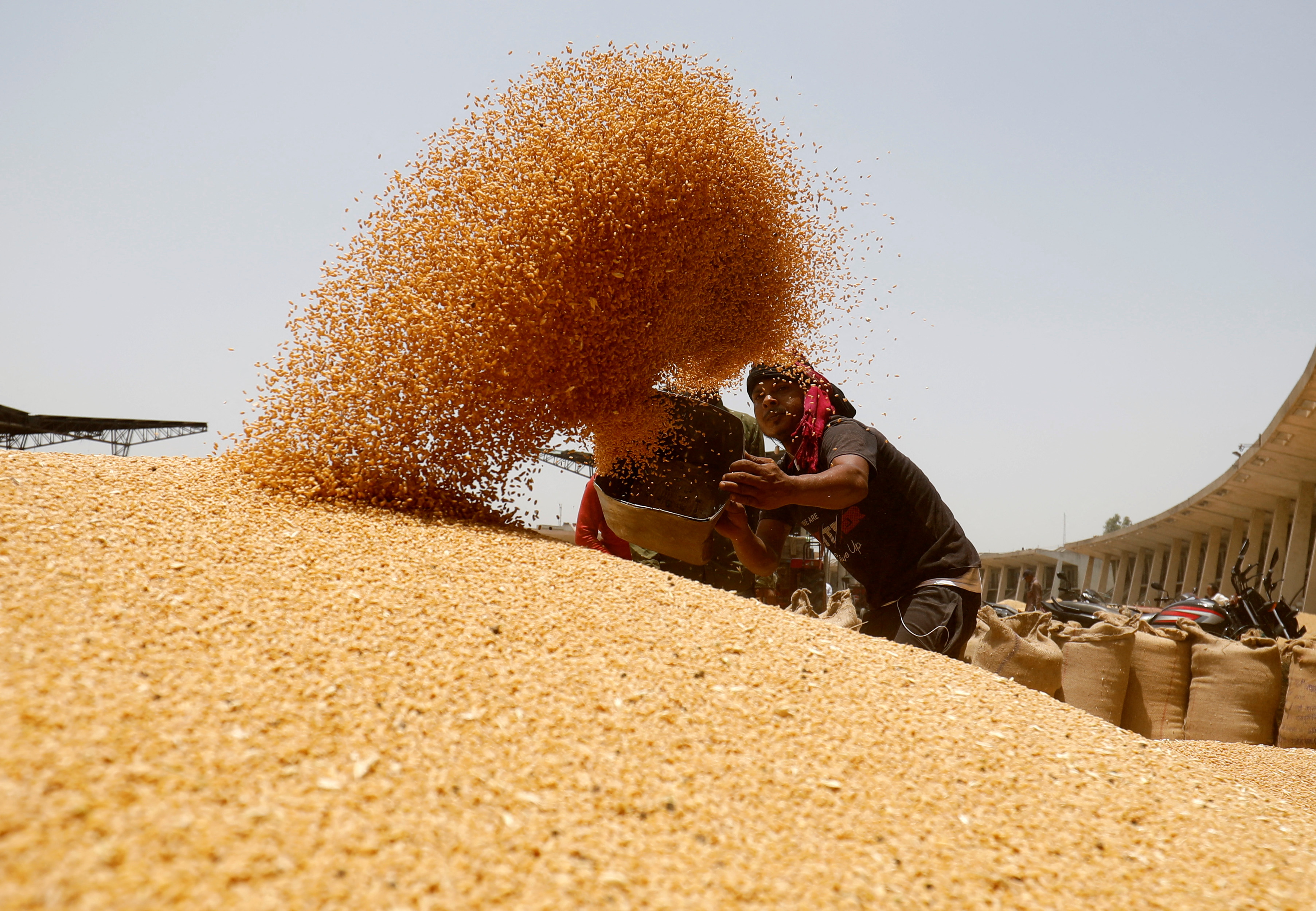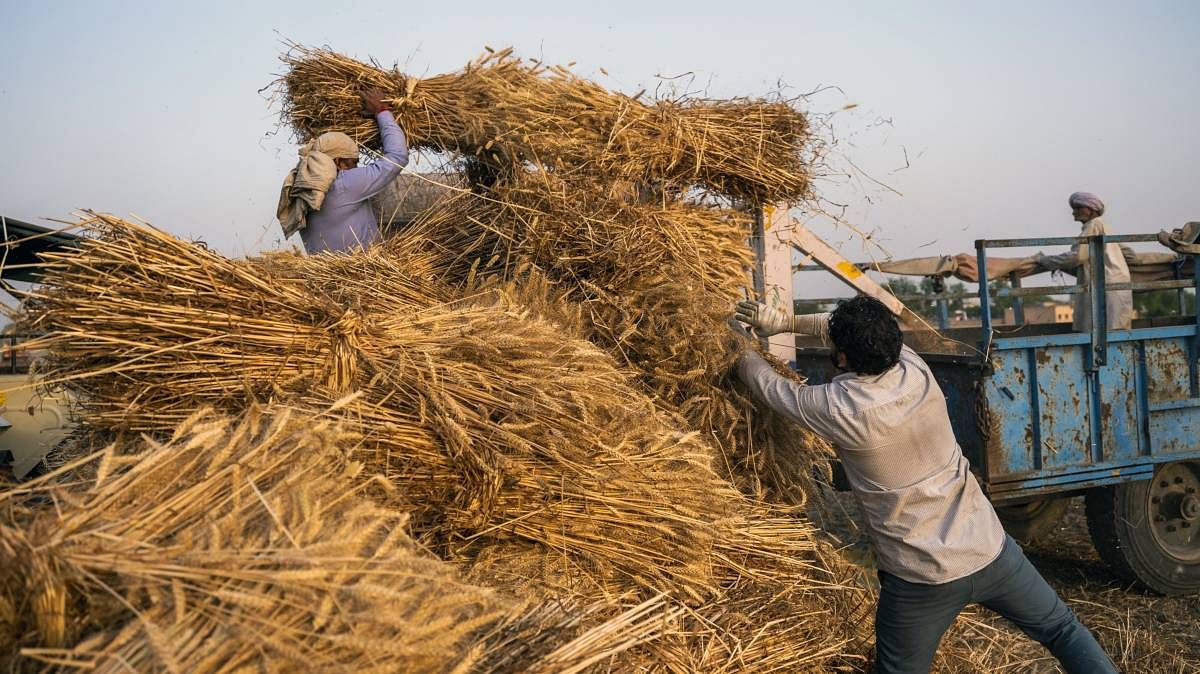FCI’s Strategic Sale of 2.37 Mn MT Wheat for Food Security

FCI’s Strategic Sale of 2.37 Mn MT Wheat for Food Security
The Food Corporation of India (FCI) recently made headlines by selling a significant quantity of wheat, totaling 2.37 million metric tons, in the open market.
This move by FCI is not only noteworthy for its scale but also for its broader implications on food security, government policies, and the agricultural landscape in India.

The FCI is a crucial government agency in India responsible for procuring, storing, and distributing food grains across the country.
According to authorities from the food ministry, the Food Corporation of India (FCI) has so far this fiscal sold more than 2.37 million tonne (MT) of wheat from its stock in the open market through weekly e-auctions, preventing an increase in retail prices.

The corporation sold 0.19 MT of wheat on Wednesday as opposed to the 0.2 MT that was offered in the electronic auction, and its goal is to sell 5 MT of grain to bulk customers by the end of the year.
According to the official, the weighted average selling price for wheat under the open market sale plan in August 2023 was Rs 2,254.71 per quintal, but that price has since decreased to Rs 2,220.17 per quintal in the e-auction held on Wednesday.
In a note from the food ministry, it was stated that the weighted average selling price of wheat had been declining and that this trend pointed to a cooling of market prices.
The note also stated that “in each weekly e-auction conducted, the quantity sold has not crossed 90% of the quantity offered, which shows that sufficient stocks of wheat are being offered throughout the country.” Wheat retail inflation dropped from 9.3% in August to 7.93% last month as a result of the FCI selling excess supplies to bulk purchasers.

In order to manage prices, FCI is now selling 0.2 MT of wheat every week on the open market from its inventories.
It plays a pivotal role in ensuring food security and stabilizing food prices in the nation. The agency typically procures wheat and rice directly from farmers at government-set minimum support prices (MSP) to build a buffer stock that can be used in times of food scarcity or to control prices in the open market.
This sale represents one of the largest single sales of wheat by FCI. The sheer quantity involved underscores the need to manage the excess grain stocks held by the government, as they have reached levels that exceed the buffer stock norms.
FCI has been grappling with storage issues and rising carrying costs due to excess grain stocks. Selling surplus wheat in the open market helps ease the storage burden and reduces the financial burden on FCI, which can be redirected towards other essential activities.

Such a large influx of wheat into the open market can potentially influence wheat prices. It may lead to a temporary decrease in wheat prices, which could benefit consumers by reducing the cost of essential food items.
However, farmers who were accustomed to selling their produce to FCI at MSP may be concerned about potential price fluctuations in the open market. It is crucial for the government to address these concerns and ensure that farmers receive fair prices for their wheat.
The sale of surplus wheat does raise questions about the adequacy of the buffer stock to meet future food security needs, especially in times of crisis or adverse weather conditions. Ensuring that buffer stocks are maintained at optimal levels is essential for safeguarding food security.
The sale of surplus wheat by FCI is in line with broader government policies and reforms in the agricultural sector. The government has been pushing for agricultural reforms to liberalize the sector, promote private sector participation, and provide farmers with more market-oriented choices.

The sale of surplus grains in the open market aligns with the government’s efforts to reduce its intervention in the grain market and allow market forces to play a more prominent role in determining prices. It also reflects a shift from a purely procurement-oriented approach to a more balanced strategy that considers the need for effective storage management and cost optimization.
The Food Corporation of India’s sale of 2.37 million metric tons of wheat in the open market is a significant development in India’s agricultural landscape. While it addresses the immediate challenges of storage and financial constraints faced by FCI, it also raises important questions about food security, farmers’ interests, and the overall impact on wheat prices.

Balancing the interests of all stakeholders, including farmers, consumers, and the government, is crucial in implementing such policy changes effectively. It will be essential for the government to monitor the situation closely and make necessary adjustments to ensure that food security remains a top priority, even as it pursues reforms in the agricultural sector.
The sale of surplus wheat should be seen as a strategic move aimed at improving the efficiency of food grain management and promoting a more market-driven agricultural ecosystem in India.




